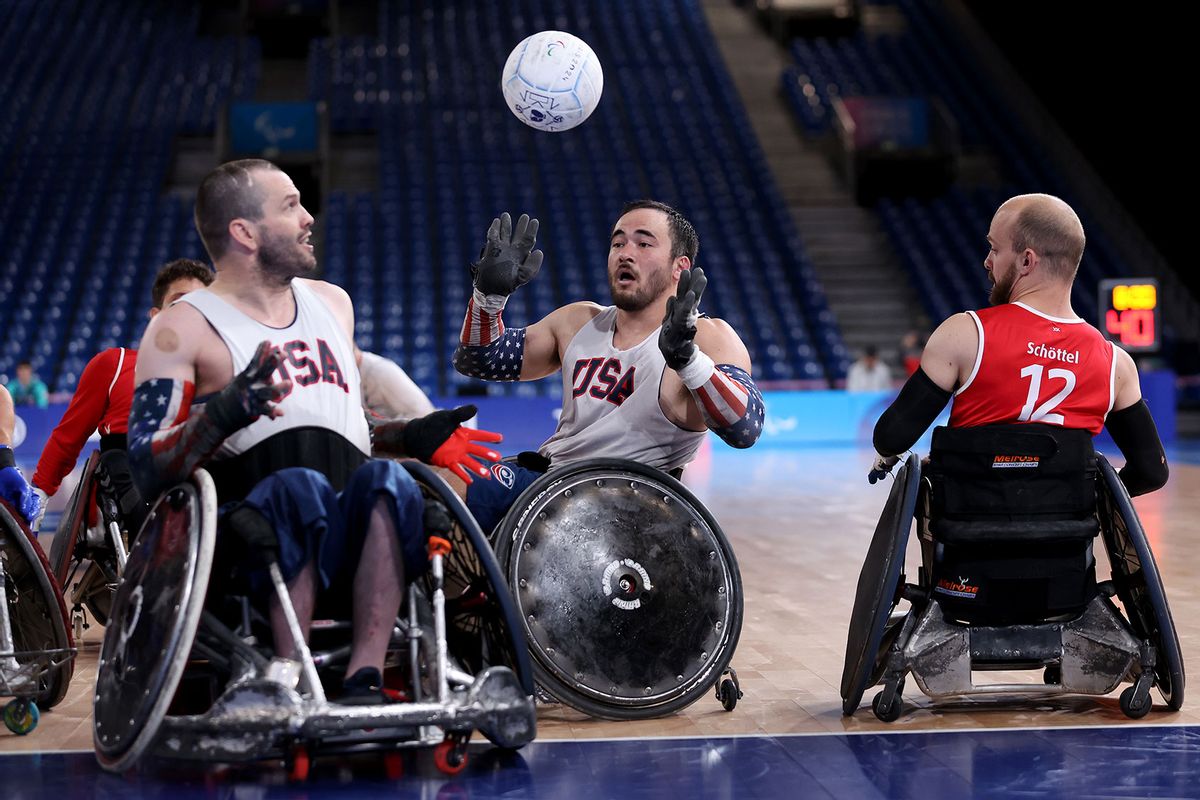The next installment of this summer’s hotly anticipated international sports competition is here.
A couple weeks since the Olympic Games concluded, the Summer Paralympic Games will take over in Paris on Wednesday, Aug. 28, and will run through Sunday, Sept. 8. The 11-day competition, which marks the first time the Summer Paralympics have been held in France, will feature 4,400 athletes with physical or cognitive disabilities from 128 different countries across 22 sports.
If you’re tuning in from the U.S., you can watch the Paralympics on any of NBC’s various channels, such as USA Network. You can also stream the Games on Peacock, the official Paralympics YouTube channel, NBCOlympics.com and the International Paralympic Committee (IPC) website.
Check out what you should know about these historic Games. Go, Team USA!
Like the Olympic Games, the Summer Paralympics are opting to forgo a stadium start and instead will introduce the world to its bevy of athletes from a more intimate location within the city itself. Beginning on Wednesday, Aug. 28 at 1 p.m ET, Paralympians will traverse the famed Champs Élysées, a stunning avenue in Paris that runs from the Arc de Triomphe to the Place de la Concord.
The lighting of the Paralympic torch will take place at the end of the route, which will also be accessible to fans and spectators. Team USA’s Steve Serio, a member of the Paralympic basketball team, and Nicky Nieves, a Paralympic volleyball player, will act as flag bearers for the ceremony.
This system, which takes place before the Games begin, is meant to ensure that athletes of similar abilities are matched to each other. According to the Olympics' official website, medical and technical experts assess Paralympians to determine which sport class they should be allocated to, in accordance with “the degree and nature of their eligible impairments.”
Given the varied nature of sports at the Games and the manner in which they are played, there is no single classification system; instead, each discipline has its own separate classification. Classifications are delineated with a letter, typically the first letter of a specific sport, followed by a number which typically corresponds to the severity of an athlete’s impairment.
Chuck Aoki, a member of Team USA’s wheelchair rugby team, explains the Paralympic classification system to his Instagram followers in a post shared on Aug. 14. “The goal is . . . to have people of like ability competing against each other,” he said. “Visually impaired runners will compete against other visually impaired runners. You won’t have a visually impaired person going against a wheelchair user, for example, because that would be chaos.”
Aoki, whose classification number is a 3, also noted that “there are a lot of nuances” to the system.
In an especially historic moment, Italian sprinter Valentina Petrillo will become the first transgender woman to compete at the Paralympics. The 50-year-old athlete, who has a degenerative visual impairment called Stargart disease, will run the 200- and 400-meter events as part of the T12 classification.
“Yes, I have problems with my vision, I’m partially sighted, I’m trans – and let’s say that’s not the best in our Italy, being trans – but I am a happy person,” Petrillo told The Associated Press in Italian during an interview held in a suburb of Bologna, Italy. “I began transitioning in 2019 and in 2020 I realized my dream, which was to race in the female category, to do the sport that I had always loved doing,” she said. “I got to 50 before it came true . . . we all have the right to a second choice of life, a second chance.”
In another trailblazing first, British actor Rose Ayling-Ellis is set to become the first deaf person to host live sports coverage on television when she acts as the lead broadcaster for the U.K.’s Channel 4. Ayling-Ellis, who formerly starred in the BBC soap opera, “EastEnders,” shared with the outlet that the Paralympics are "a great opportunity to show people what us disabled people can do.”
She added that the event "breaks people's barriers of understanding what we are capable of,” but noted that disabled people “shouldn't be trying to prove this to people."
The Paralympic symbol — which was introduced in 2019 — is comprised of three elements in red, blue and green, representing widely used colors in national flags across the globe. The name “The Three Agitos,” comes from a Latin term meaning “I move.” Per a post on NBCOlympics’ Instagram page, the symbol “encircles a central point to symbolize motion and emphasizes the role of the Paralympic movement in bringing athletes together from all corners of the world to compete.”
According to the IPC’s official website, The Three Agitos also “emphasize the fact that Paralympic athletes are constantly inspiring and exciting the world with their performances: always moving forward and never giving up.”
- Para Archery
- Para Athletics
- Para Badminton
- Blind Football (soccer)
- Boccia
- Para Canoe
- Para Cycling
- Para Equestrian
- Goalball
- Para Judo
- Para Powerlifting
- Para Rowing
- Shooting Para Sport
- Sitting Volleyball
- Para Swimming
- Para Table Tennis
- Para Taekwondo
- Para Triathlon
- Wheelchair Basketball
- Wheelchair Fencing
- Wheelchair Rugby
- Wheelchair Tennis
Of the range of sports played at the Paralympics, only three are open to athletes with intellectual disabilities: para athletics, para swimming, and para table tennis



Shares